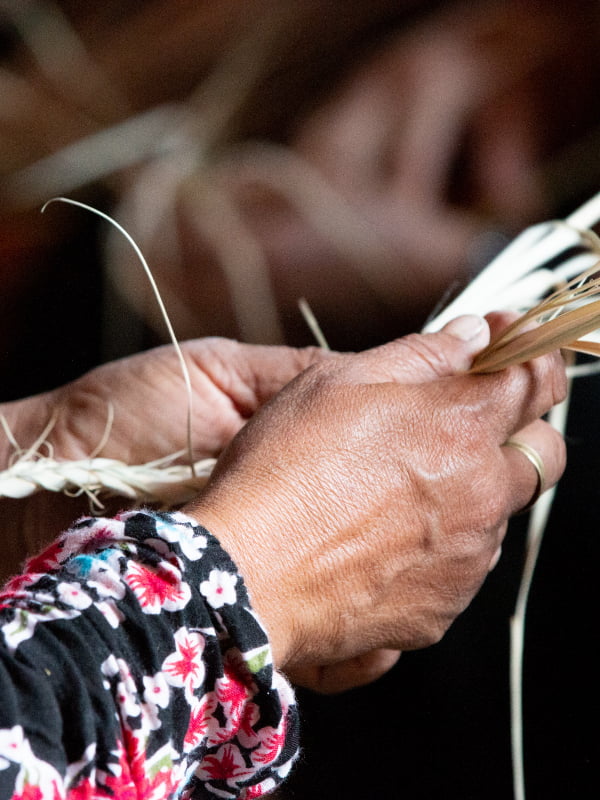Supply Chain Responsibility
Corporate Social Responsibility (CSR) or Responsible Business Conduct (RBC) goes beyond doing business. Suppliers, subcontractors and vendors involved in the production chain should also pursue RBC. In emerging markets, determining how the links in your supply chain operate is often difficult. For example, many small family-run businesses are part of the informal sector, with little transparency. Often, it is difficult to guarantee that all products are manufactured responsibly.
Due diligence
Due diligence means that you should identify and report the impact of your business activities on the following:
- the environment.
- corruption, and
- working conditions.
It is essential to be aware of your supply chain and minimise risks. For example, if you have insufficient influence on your suppliers, you can approach fellow businesses, European sector organisations, NGOs or the local authorities to help you get more influence.
Monitoring suppliers with few company resources
Many large organisations use methods to monitor suppliers. Smaller businesses often have less time and money to do so. The following initiative may help smaller businesses get insight into their suppliers.
European monitoring system
The European Business Social Compliance Initiative (BSCI) system monitors working conditions. The system aims to improve global working conditions. BSCI encourages suppliers to follow the International Labour Organisation standards, among others.
Tips and tools
Are you having trouble getting insight into the supply chain? Please read our tips below.
Ask your suppliers about their RBC policy
Working together with your suppliers and vendors will make it easier for you to appeal to their sense of responsibility. Promote RBC across the entire supply chain, not just within your business.
Ask your suppliers about their RBC activities
Ask your suppliers where their products come from and under which circumstances they are being produced. Do your suppliers occasionally outsource work, and if so, to whom? How many working hours are there in a working week, and what do workers earn?
Choose reliable partners
Do business through reliable intermediaries and agents with a good command of the local language. Ask other businesses about their experiences and ask explicitly what the companies they have worked with are doing in RBC.
Work together with NGOs
Many industrial supply chains are not transparent. Where do the raw materials you import for a semi-finished product come from? Where is a specific component of a semi-finished product manufactured? These questions can often only be answered after a thorough investigation. However, many small businesses lack the resources to carry out investigations. If you work with NGOs, you may get answers to these and other questions.
Keep your supply chain short
This will limit the chance of misunderstandings in one of the links in the supply chain. It also offers advantages in the field of finance and quality.
Apply international guidelines
The Netherlands government expects businesses outside the Netherlands to follow RBC through different guidelines. Encourage your business partners to follow international RBC standards such as the OECD Guidelines.
Work with social standards
Important instruments for labour standards and terms of employment include:
• Social Accountability 8000 standard for producers and suppliers in various sectors who require SA8000 certification at the factory level;
• Business Social Compliance Initiative for retail, industry and importers.
Use audit tools
Many NGOs and commercial enterprises have developed audit tools to assess the implementation process. These tools are often available free of charge.
Work together with fellow businesses
A single producer can damage your reputation. To prevent this from happening to you, you must collaborate with competitors and businesses in the supply chain. This will prevent competing prices from driving good businesses out of the market. Sector organisations can guide such beneficial collaborations in the right direction.
Include requirements in contracts
You have the right to ask your partners or suppliers to comply with social, tax and environmental legislation. You can also include additional RBC requirements (such as working conditions or environmental aspects) in contracts with your partners. Emphasise the financial advantages of RBC, such as consistent quality and lower staff turnover.
Get insight into working from home
Use careful diplomacy to find out how much work is outsourced to home workers. You can often deduce this fact from your supplier's production capacity. Making enquiries with local NGOs may also yield results.
Ensure compliance with codes of conduct
Give your business partner the time to comply with your code of conduct. You may have imposed requirements that need considerable investments. Be aware that not every business can achieve this outcome immediately. Assess whether your supplier can implement your code of conduct independently. If not, you should help your supplier. Always ensure the code of conduct is available in the supplier's language. Also, ensure the supplier distributes your code of conduct to its employees and suppliers.
Monitor RBC agreements with suppliers
Visit your supplier unannounced. During such a visit, it will soon become clear whether your supplier follows the RBC agreements. If not, it is important to discuss this matter with your supplier.
Use consistent purchasing methods
Make sure that your purchasing methods do not prevent improvements in working conditions. To develop an ethically responsible supply chain, you should consider the following:
- consistent prices and longer/realistic delivery times;
- commitment to purchase stocks in 'bad times'. In other words, you must be prepared to follow through on purchasing contracts;
- involvement in audits on working conditions in the workplace, so you understand and endorse the principles;
- opportunity for suppliers to give feedback on the pressure that they are facing without threatening the contractual relationship;
- a preferred supplier status for business demonstrating good or improved working conditions.
- Ministry of Foreign Affairs



